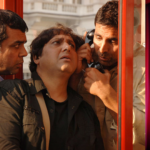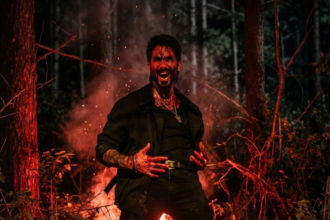Mumbai: Rishab Shetty’s Kantara Chapter 1 stands not as a mere film but as a cultural text that binds folklore faith and the grammar of modern cinema into a seamless whole. As writer, director and actor Rishab Shetty’s vision as a filmmaker draws deeply from the soil and oral traditions of Karnataka reimagining them with a timeless urgency. To put it in a single word his work here is majestic.
A cast in full command
The film’s strength lies not only in Shetty’s presence. Rukmini Vasanth as Kanakavathi delivers a performance of quiet power and emotional resonance. Her silences gestures and understated intensity ground the narrative with tenderness and strength.
As the antagonist Gulshan Devaiah as Kulashekara plays the role with remarkable subtlety. Without ever raising his hand he leaves a lasting impression of menace and authority. In contrast Jayaram as King Vijayendra embodies the grandeur of a Maharaja with power and conviction. Alongside them Pramod Shetty, Rakesh Poojari, Prakash Thuminad, Deepak Rai Panaje, Hariprashanth M G, Shaneel Gautham and Naveen Bondel contribute with such authenticity that the ensemble becomes inseparable from the world the film seeks to create.
Sound, costume and spectacle
The music of Kantara by B. Ajaneesh Loknath achieves what few contemporary scores manage an extraordinary fusion of folk idioms with modern soundscapes. In the climactic battle sequence Diljit Dosanjh’s song elevates the visuals into an invocation a sonic surge that overwhelms and enthralls in equal measure.
The film’s costumes and set design deserve particular mention. With their meticulous detail they lend the narrative an impeccable period look transporting the viewer into a cultural space that feels both historic and immediate. The forests rituals and flames are rendered with painterly precision transforming nature itself into a character.
A living epic
Kantara Chapter 1 is not simply a film to be consumed it is an epic to be endured absorbed and remembered. Its cultural resonance lies in the way it transforms cinema into a collective experience one that is as spiritual as it is aesthetic.
A lesson for Hindi cinema
For Bollywood Kantara holds a quiet but urgent lesson. The vitality of cinema does not lie in chasing stardom but in choosing scripts that emerge from the ground from lived histories and cultural memory. The Hindi film industry increasingly caught in the trappings of glamour and superficial spectacle risks eroding its own legacy. In contrast the southern industries have consistently shown how rooted storytelling can yield universality. Kantara stands as their most compelling example yet.















